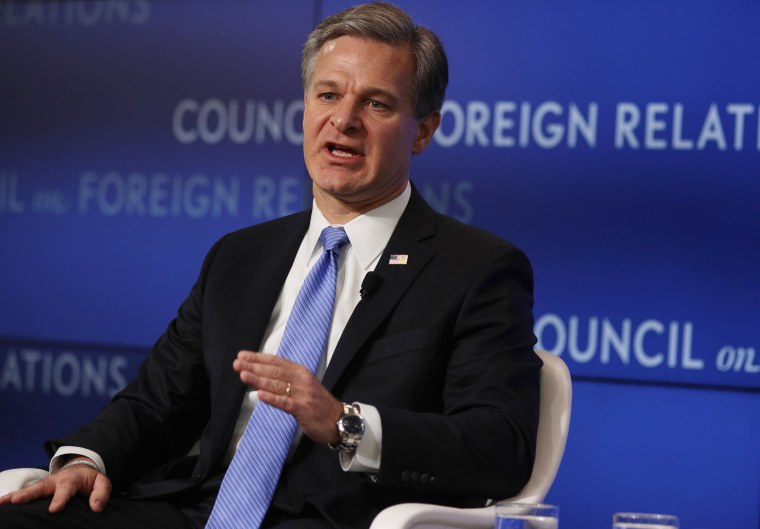WASHINGTON — Russian efforts to influence American public opinion are not confined only to periods around elections, FBI Director Chris Wray said Friday.
"It's pretty much a 365-days-a-year threat. And that has absolutely continued," Wray said.
The FBI chief said it consists of constant use of social media, with "fake news, propaganda, false personas, et cetera, to spin us up, pit us against each other, sow divisiveness and discord, and undermine Americans' faith in democracy."
That effort "was at full speed" during the 2018 midterm elections, he said. But the U.S. did not detect any material interference from Moscow during the midterms with either the election or the campaign infrastructure.
In an appearance before the Council on Foreign Relations in Washington, Wray said social media companies "have made enormous strides" in identifying and shutting down Russia's social media efforts.
"But we recognize our adversaries will keep upping their game. 2018 was just a dress rehearsal for 2020," he said.
Asked about President Donald Trump's repeated criticisms of the FBI, Wray said "rumors about damage to morale or our brand are grievously overstated."
Since October, 16,000 people have applied to be special agents, more than the total applications for all of the prior year. Intern applications are at record highs. And the FBI's attrition rate last year was 0.5 percent.
It's a challenge, he said, to get tech savvy people to join the bureau. But he said today's young people are less drawn to financial incentives and more attracted to challenging ways to solve hard problems.
"Besides, we give them the opportunity to do what they can't legally do in the private sector," he said.
As for his own social media profile, he has none, as noted in this exchange:
"Are you yourself on Facebook or Twitter?"
"Nope."
"After you're out of this job, would you start?"
"Nope."

